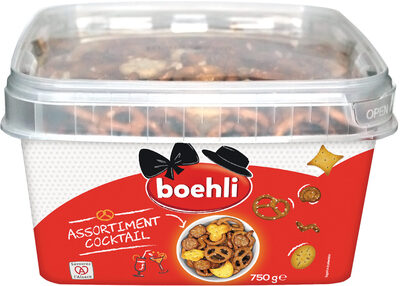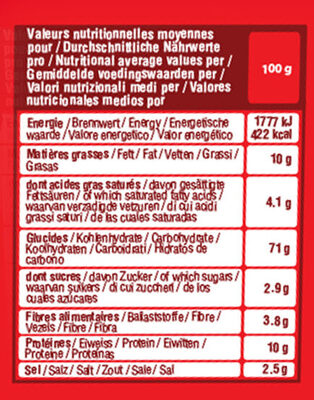Cubi assortiment cocktail - Boehli - 750 g
This product page is not complete. You can help to complete it by editing it and adding more data from the photos we have, or by taking more photos using the app for Android or iPhone/iPad. Thank you!
×
Some of the data for this product has been provided directly by the manufacturer BOEHLI. - Customer service: qualite@boehli.fr 03 88 72 91 16
Barcode: 3185610003607 (EAN / EAN-13)
Common name: Cubi assortiment cocktail
Quantity: 750 g
Packaging: Box, fr:Boîte refermable, fr:Cubi, fr:Tubo
Brands: Boehli
Categories: Snacks, Salty snacks, Appetizers, Crackers, Pretzel
Labels, certifications, awards: Vegetarian, Kosher, Made in France
Origin of the product and/or its ingredients: France, Espagne
Manufacturing or processing places: France, Alsace, Gundershoffen
Link to the product page on the official site of the producer: https://www.boehli.fr/
Countries where sold: France
Matching with your preferences
Other information
Preparation: Prêt à déguster.
Conservation conditions: A conserver à l'abri de la chaleur et de l'humidité
Customer service: BOEHLI - 14 rue des Genêts - 67110 GUNDERSHOFFEN - France - 03 88 07 33 13 - qualite@boehli.fr
Report a problem
Data sources
Product added on by openfoodfacts-contributors
Last edit of product page on by org-boehli.
Product page also edited by boehli, packbot, roboto-app, tib-de-bar.













